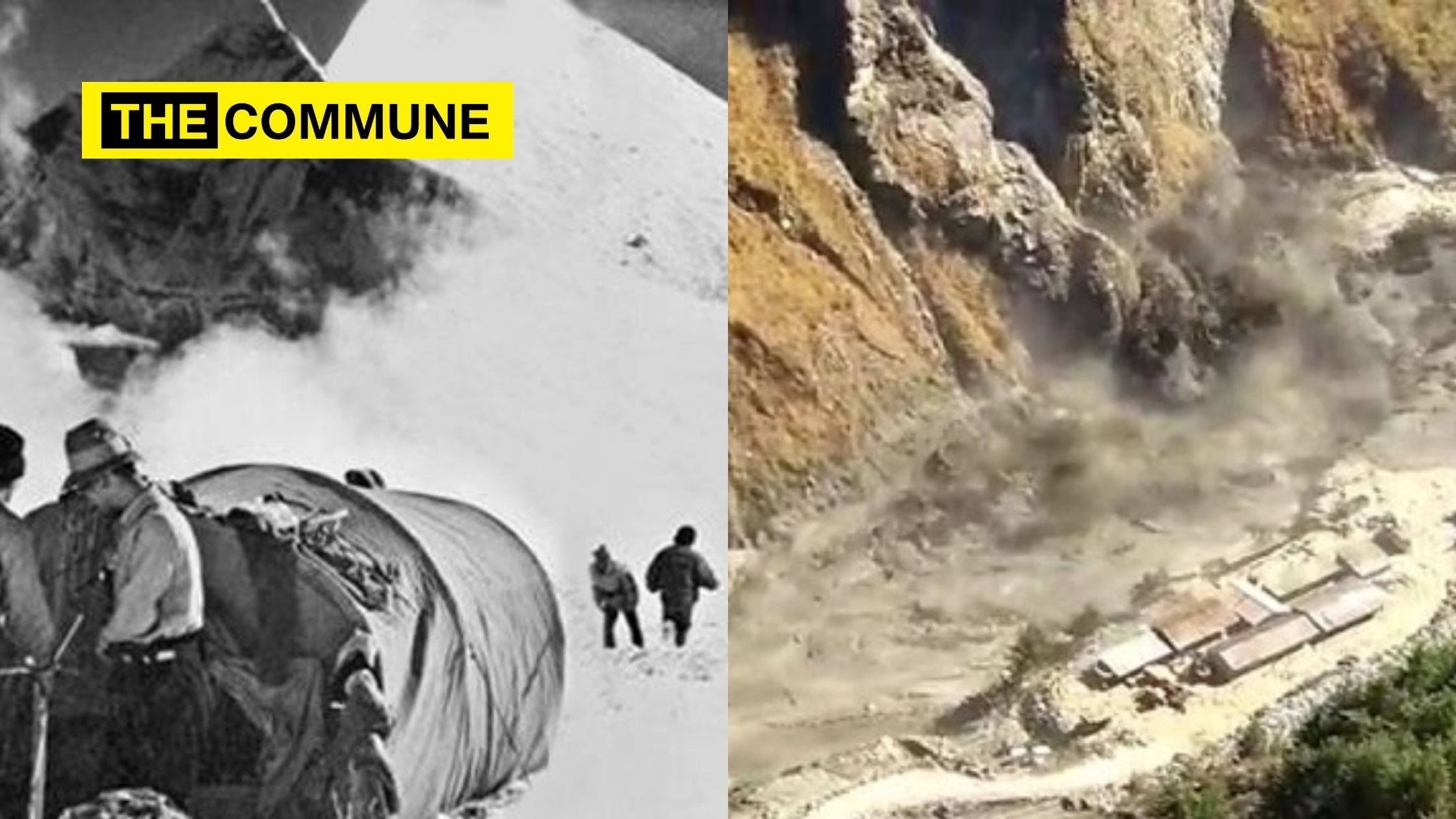
The catastrophic glacier burst which caused massive flash floods in the Tapovan area of Chamoli has expressed concerns this cataclysmic event may have been produced by a radioactive device, reports Times of India.
Raini village bore the brunt of the destruction caused by the flash floods and locals are relating this to a top-secret mission which was carried out in 1965 conducted by the American Central Intelligence Agency (CIA) and the Indian Intelligence Bureau (IB) to plant nuclear-powered surveillance equipment on the summit of the mountain, India’s second-highest (after Kanchenjunga) for spying on China.
This mission was carried out after the aftermath of the ignoble defeat India suffered at the hands of China in 1962. Fearing India might fall, American President John F Kennedy gave military aid to India and came to its rescue and this mission was to monitor the communication from China which as a country was closed to the rest of the world.
However, the number one reason was in 1963 China had conducted its first nuclear test and so this clandestine mission was carried out to install a nuclear-powered spying device on the summit of Nanda Devi peak. But due to bad weather, the expedition team left the nuclear-fuelled generator and plutonium capsules with the intention of renewing its attempt at a later date.
However, the mountaineering team carrying out this hazardous expedition got caught in a blizzard and had to return, leaving the device at the base of the mountain. When they returned a year later, they could not find the device and even after numerous expeditions the device could not be traced.
Since the power source for this device was nuclear, the life span for the radio surveillance is over 100 years and now many believe that the lost nuclear device could have caused the flood.
According to the people who live in the Raini village in Chamoli district, which is situated in the Nanda Devi Biosphere, they noticed an extremely pungent smell in the air as muck and rubble from the mountain came rolling down and fell into the Rishiganga river.
“The smell was so intense that we were not able to breathe for some time. Had it been only debris and snow, it would not have carried such a smell. This has triggered concerns in our village that the long-lost radioactive device – about which our elders used to tell us – may be behind the incident,” said Deveshwari Devi, a resident of Jugju village, from where several men had served as porters during the 1965 expedition.
Now the villagers are concerned about the possible radioactive pollution caused by this device.
“During the 1965 expedition, we are told that the mountaineering team faced bad weather while they were above the base camp and they had to leave the device at a safe place there. If the device is buried under the snow somewhere in the area and is radiating heat, then of course there would be more melting of snow and further avalanches. We urge the government to immediately start a search operation for the device before there are more disasters,” said Sangram Singh Rawat, a local.
The leader of the expedition, Capt Manmohan Singh Kohli, was quoted saying in TOI report, “After the Chinese carried out their first nuclear test in 1964, the US decided to spy on China’s nuclear capabilities via India. The CIA asked the Indian government if it could plant a sensor. The government, which at the time blindly followed the CIA, agreed. On June 23, 1965, we did a trial run on Mount McKinley in Alaska, and then went to Nanda Devi, but had to turn back because of bad weather conditions. Unable to carry it back, we left the device there. We went back in May 1966 to search for it, and again in 1967 but had no luck. In 1968, we finally abandoned the search. Because it was a top-secret mission, we were not allowed to disclose what we were doing even to our families. The American agents used aliases. The whole thing was quite exhausting, but we were in the service of the nation,”.
Click here to subscribe to The Commune on Telegram and get the best stories of the day delivered to you personally.




